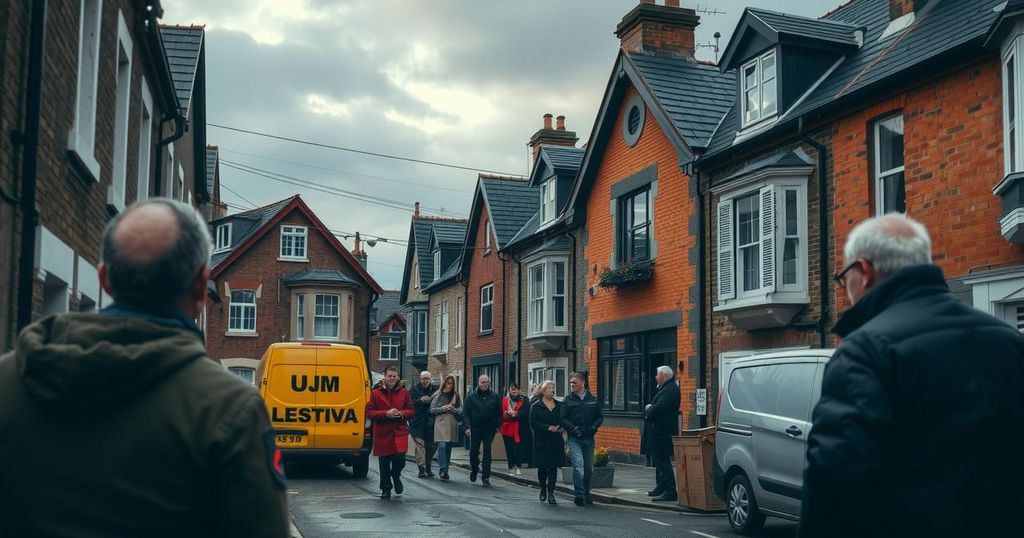World news
” HUTCH, BALLYFERMOT, CLONBURRIS, DUBLIN, DUBLIN CITY, DUBLIN CITY CENTRE, ELECTION, EUROPE, FIA, FIANNA FAIL, GERRY “ THE, GERRY “ THE MONK ” HUTCH, GOVERNMENT, IRELAND, LIBERTY RECYCLING, LIFESTYLE, LOCAL NEWS, MARY LOU MCDONALD, MIC, MICHEAL MARTIN, NEWS, OF IRELAND, PARLIAMENTARY SEATS, PETER MORRISON, SETON ’ S, SINN FEIN, SOUTH DUBLIN, ST, ST SETON ’ S, ST SETON ’ S SECONDARY SCHOOL, TAN
Amira Khan
0 Comments
Ireland’s Election: Housing and Immigration Shape a Volatile Political Climate
As Ireland’s general election approaches, housing and immigration issues dominate the campaign, leading to widespread voter discontent with traditional parties. The housing crisis is critical, with rising property prices and a notable lack of affordable homes, while immigration has become a polarizing topic as new arrivals reshape the population. Candidates from various parties, including independents, are addressing public concerns, indicating a significant shift in the political landscape as established parties face growing competition and scrutiny.
As Ireland approaches its general election on November 29, 2024, concerns regarding housing and immigration dominate the campaign, resulting in a charged political atmosphere. Posters of various candidates, notably Gerry Hutch, are prominently displayed in Dublin. While Hutch’s criminal background raises eyebrows, some disillusioned voters express support, reflecting a broader sentiment of dissatisfaction with traditional political parties.
The housing crisis has escalated, with significant price increases and a reported shortage of up to 256,000 homes. Many citizens, especially young professionals, are either struggling to find affordable housing or contemplating emigration due to economic pressures. Meanwhile, immigration has emerged as a contentious issue as Ireland’s demographic landscape shifts, introducing over 120,000 new arrivals in one year alone, including those fleeing conflict and hardship.
Political candidates from established parties, alongside independents, are responding to public discontent, promising to address housing shortages and manage immigration more effectively. Polls indicate a fragmented electorate, highlighting rising support for smaller parties and independent candidates as traditional powerhouses, Fine Gael and Fianna Fail, face mounting criticism. Amid these tensions, coalition discussions loom as parties strategize to maintain governance in a rapidly changing political landscape.
Ireland’s political environment is undergoing significant change as the country gears up for its general election. The traditional dominance of Fine Gael and Fianna Fail faces challenges from Sinn Fein and a growing array of independent candidates. Voters express frustration over rising living costs, particularly housing, and express mixed feelings about immigration issues. This discontent reflects broader trends seen globally, where populations increasingly reject establishment politics in favor of alternatives that resonate with their immediate concerns. Key issues such as a housing deficit, rising rents, and the absorption of a significant number of immigrants, particularly from conflict zones, have created a volatile climate for the election. The challenges faced by different demographics—particularly young professionals and older residents—illustrate the urgency for policy reform in these areas. As Ireland’s demographic composition shifts with a substantial immigrant population, political candidates respond with varying platforms, shaping a dynamic electoral landscape.
In conclusion, the upcoming election in Ireland highlights profound concerns over housing and immigration, reflecting a disillusionment with established political structures. Candidates like Gerry Hutch symbolize the growing appeal of independent figures amid widespread dissatisfaction, while housing shortages and immigration pressures continue to provoke debate. As public sentiment shifts, parties are compelled to rethink their traditional strategies in favor of more responsive policies. The election outcome will likely impact Ireland’s political landscape, setting the stage for potential coalitions and policy reforms in the future.
Original Source: apnews.com




Post Comment